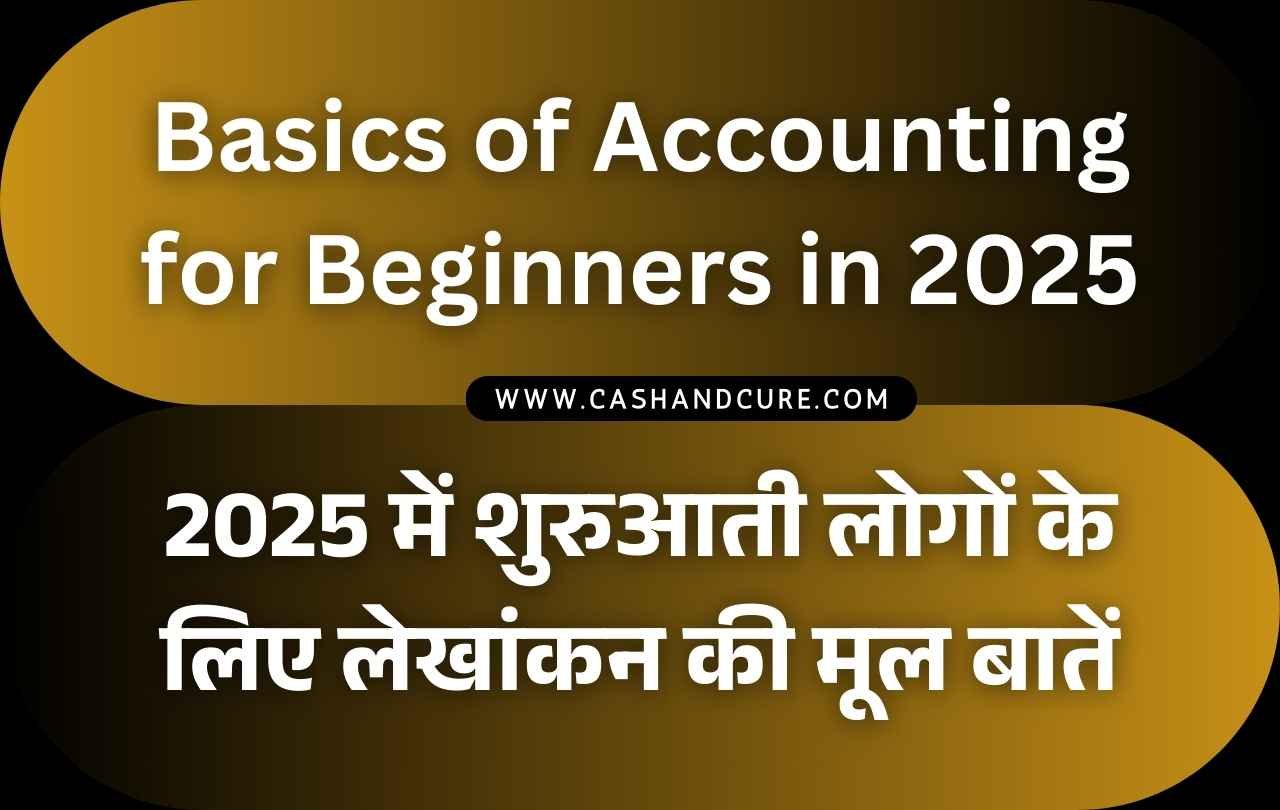Basics of Accounting for Beginners in 2025: Accounting is the backbone of any business, helping individuals and organizations track their finances, manage cash flow, and make informed financial decisions. If you are a beginner looking to learn the basics of accounting in 2025, this guide provides a detailed roadmap, including fundamental concepts, types of accounting, key principles, practical applications, and career opportunities in accounting.
Why Learn Accounting in 2025?
- An essential skill for businesses, entrepreneurs, and individuals managing personal finance.
- High demand for accountants in corporate firms, startups, and government sectors.
- Lucrative career opportunities with high salary potential.
- Foundation for advanced financial studies like CA, CMA, CFA, and MBA in Finance.
- Automation and AI in accounting are changing the landscape, making it an exciting field to enter.
What is Accounting?
Accounting is the process of recording, summarizing, analyzing, and reporting financial transactions. It helps businesses and individuals track income, expenses, assets, and liabilities to ensure financial stability.
Basics of Accounting for Beginners in 2025

Key Accounting Terms for Beginners
- Assets – Resources owned by a business (e.g., cash, property, inventory).
- Liabilities – Financial obligations or debts owed by a business.
- Equity – The owner’s interest in the business.
- Revenue – Income generated from sales or services.
- Expenses – Costs incurred in running a business.
- Profit & Loss Statement (P&L) – Summary of revenue and expenses.
- Balance Sheet – Snapshot of a company’s financial position.
- Cash Flow Statement – Tracks cash inflows and outflows.
- General Ledger – Record of all financial transactions.
- Double-Entry Accounting – A system where every transaction affects at least two accounts.
Types of Accounting
- Financial Accounting – Preparing financial statements for external stakeholders.
- Managerial Accounting – Internal financial analysis for business decision-making.
- Tax Accounting – Managing tax-related matters and compliance.
- Cost Accounting – Analyzing costs of production to improve efficiency.
- Auditing – Examining financial records for accuracy.
- Forensic Accounting – Investigating financial frauds and irregularities.

Fundamental Accounting Principles
Accounting follows a set of principles that ensure consistency and reliability:
- Accrual Principle – Revenue and expenses are recorded when they occur, not when cash is received or paid.
- Consistency Principle – The same accounting methods should be used over time.
- Going Concern Principle – Assumes the business will continue operating in the foreseeable future.
- Conservatism Principle – Anticipates future losses but not future gains.
- Matching Principle – Expenses should be recorded in the same period as the revenue they generate.
- Revenue Recognition Principle – Revenue is recognized when it is earned, not when payment is received.
Steps to Learn Accounting as a Beginner in 2025
- Understand Basic Accounting Concepts – Learn fundamental terms and principles.
- Study Financial Statements – Familiarize yourself with balance sheets, income statements, and cash flow statements.
- Practice Recording Transactions – Learn how to log financial transactions using accounting software.
- Learn Double-Entry Accounting – Understand how debits and credits work.
- Use Accounting Software – Get hands-on experience with tools like Tally, QuickBooks, Zoho Books, and Wave.
- Take Online Courses – Enroll in free or paid courses on platforms like Coursera, Udemy, or edX.
- Work on Real-World Case Studies – Apply your knowledge to real business scenarios.

Best Accounting Software for Beginners in 2025
| Software | Features | Best For |
|---|---|---|
| QuickBooks | Cloud-based, easy to use, reports | Small businesses, freelancers |
| Tally ERP 9 | Popular in India, GST-compliant | Small to medium businesses |
| Zoho Books | Automated invoicing, bank reconciliation | Startups, small businesses |
| Xero | Multi-user access integrates with apps | Entrepreneurs, growing businesses |
| Wave | Free software, good for freelancers | Self-employed, small business owners |
Common Accounting Mistakes Beginners Should Avoid
- Not keeping proper records – This leads to confusion and financial mismanagement.
- Mixing personal and business finances – Causes inaccurate financial reports.
- Ignoring tax deadlines – Results in penalties and fines.
- Not reconciling bank statements – Leads to undetected errors.
- Skipping backups of financial data – Risk of losing critical financial information.
- Not seeking professional help when needed – Can cause costly financial errors.
Career Opportunities in Accounting in 2025
Accounting is a promising career choice with diverse job opportunities. Here are some of the top career options:
| Job Role | Salary Range (Per Annum) |
|---|---|
| Accountant | Rs.3-6 LPA |
| Financial Analyst | Rs.5-12 LPA |
| Tax Consultant | Rs.6-15 LPA |
| Internal Auditor | Rs.7-18 LPA |
| Forensic Accountant | Rs.8-20 LPA |
| Cost Accountant | Rs.5-10 LPA |
| Chartered Accountant (CA) | Rs.10-30 LPA |
How to Start a Career in Accounting?
- Complete 12th with Commerce (Optional) – Though not mandatory, having commerce in 12th gives an edge.
- Pursue a Degree in Accounting – B.Com (Accounting), BBA (Finance), or equivalent.
- Gain Certifications – CA, CMA, CPA, CFA, ACCA for career advancement.
- Internship or Part-time Work – Gain real-world accounting experience.
- Develop Tech Skills – Learn Excel, financial modelling, and accounting software.
- Stay Updated with Trends – Follow financial news, taxation updates, and automation in accounting.

Future Trends in Accounting (2025 & Beyond)
- AI & Automation – Replacing manual bookkeeping with AI-driven tools.
- Cloud-Based Accounting – Shift towards remote and online financial management.
- Blockchain in Accounting – Enhancing security and transparency in transactions.
- Digital Taxation – More governments implementing e-tax filing and automation.
- Data Analytics in Finance – Increased use of big data in financial decision-making.
FAQs: Basics of Accounting for Beginners in 2025
Is accounting hard for beginners?
Can I learn accounting online for free?
Do I need a degree to become an accountant?
What is the best accounting software for beginners?
How long does it take to learn accounting basics?
Conclusion: Basics of Accounting for Beginners in 2025
Understanding the basics of accounting for beginners in 2025 is essential for financial literacy and career growth. Whether you are a student, entrepreneur, or job seeker, mastering accounting principles, software, and financial management can open exciting opportunities in the corporate and financial world. Start learning today to build a strong foundation in accounting!


Leave a Reply
You must be logged in to post a comment.